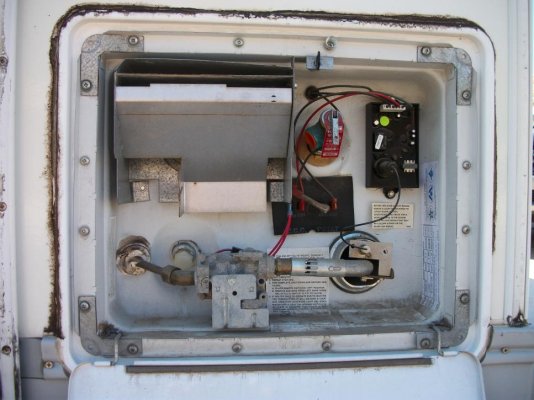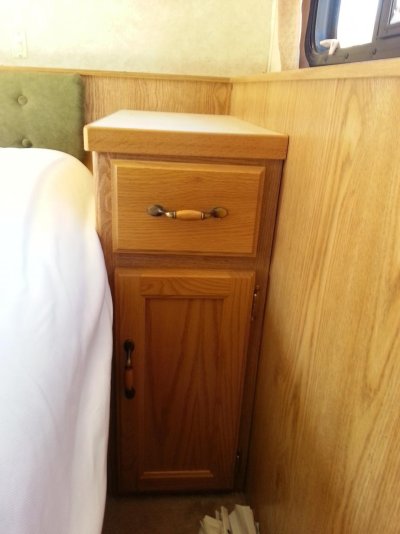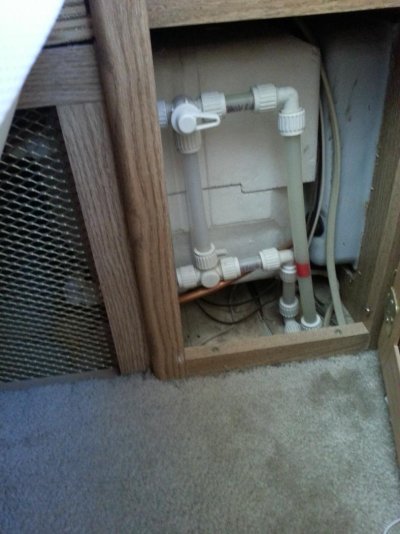Wasn't real sure where to put this post so I thought I would put it in the Scheduled service threads.
The question has arose about the necessity to winterize in Arizona? I know last night we had our first freeze warning, but I don't think it actually got to freezing where I am located in Phoenix. I have friends with trailers that say they don't winterize their trailers. But this being my first experience with a trailer I was wanting to be a little cautious.
So, yesterday I drained the water holding tanks and drained water through the supplies to the sinks by opening the sinks hand valves and also pressed the toilet drain to let any water from the supply line to the toilet also drain.
My question is about the water in the hot water heater. I opened the hot water valve on the sink in the bathroom sink and let it drain and could hear the water gurgling in the hot water tank. I let it continue for awhile until I could hear the water pump just cycling with no water and no water coming out of the hot water line at the sink either. My question is does that method really drain all the water out of the tank?
And the last question is kind of a poll for the rest of you in Arizona about what is your method or necessity to winterize here in Arizona.
The question has arose about the necessity to winterize in Arizona? I know last night we had our first freeze warning, but I don't think it actually got to freezing where I am located in Phoenix. I have friends with trailers that say they don't winterize their trailers. But this being my first experience with a trailer I was wanting to be a little cautious.
So, yesterday I drained the water holding tanks and drained water through the supplies to the sinks by opening the sinks hand valves and also pressed the toilet drain to let any water from the supply line to the toilet also drain.
My question is about the water in the hot water heater. I opened the hot water valve on the sink in the bathroom sink and let it drain and could hear the water gurgling in the hot water tank. I let it continue for awhile until I could hear the water pump just cycling with no water and no water coming out of the hot water line at the sink either. My question is does that method really drain all the water out of the tank?
And the last question is kind of a poll for the rest of you in Arizona about what is your method or necessity to winterize here in Arizona.




